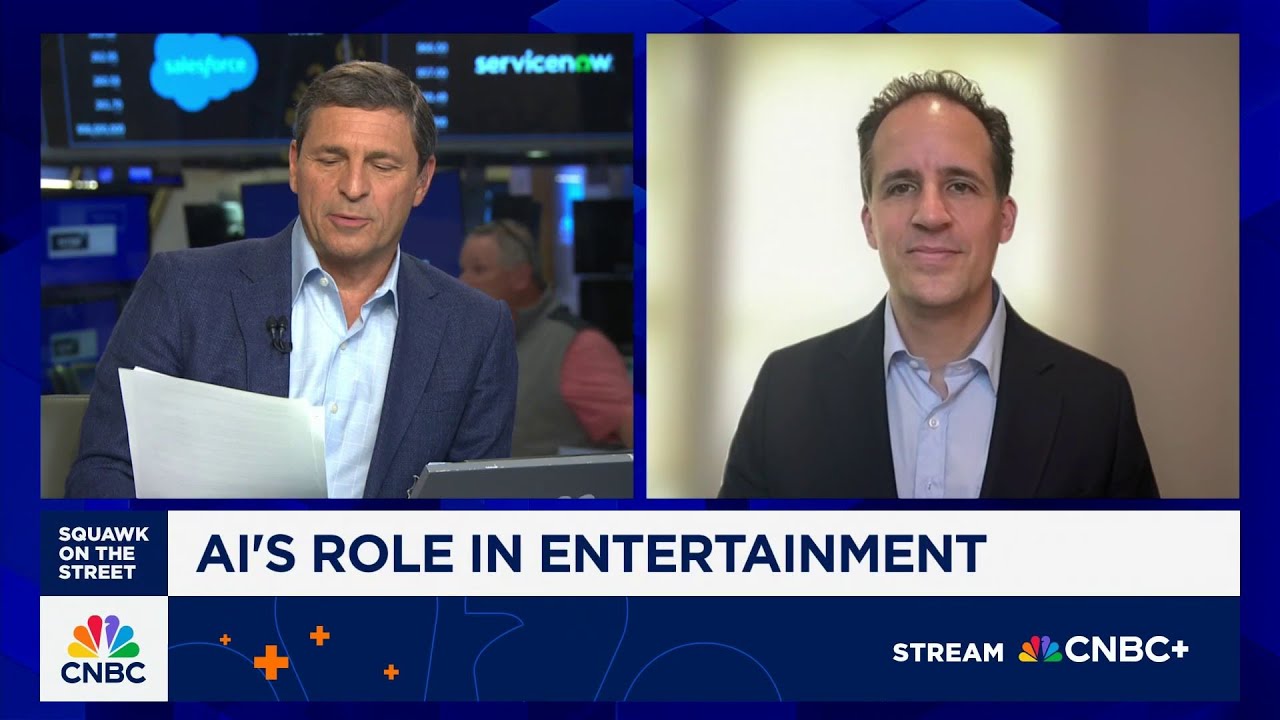Morgan Stanley’s Ben Swinburne highlighted that AI advancements will transform media and entertainment by enhancing personalization, boosting content creation, and reducing production costs, benefiting companies like Netflix, Spotify, and YouTube while reshaping competitive dynamics. He also emphasized that despite increased digital customization, the enduring human desire for shared live experiences will continue to drive demand for communal entertainment such as concerts and theme parks.
In a recent discussion from Sun Valley, Morgan Stanley’s Ben Swinburne shared insights from a new report analyzing how advances in generative AI could impact the media and entertainment industry. He highlighted that companies like Netflix and Spotify are well-positioned to benefit from AI-driven tools that enhance personalization, content discovery, and curation for consumers. Additionally, AI has the potential to reduce production costs for studios by 10 to 30%, although Swinburne cautioned that savings might be offset by increased talent costs in this competitive, talent-driven industry.
Swinburne also addressed the growing influence of independent creators empowered by AI tools, which could significantly increase the volume and diversity of content available, especially in music and potentially in TV and film. This explosion in content creation could lead to a larger overall revenue pie but with thinner slices for individual creators and companies. For Netflix, while AI-driven efficiencies could boost margins to as high as 50% in the near term, the long-term impact on its scale advantage remains uncertain as the creator economy expands.
YouTube was identified as a clear beneficiary of AI advancements, given its foundation in the creator economy and its already dominant position in U.S. TV consumption alongside Netflix. Swinburne noted that YouTube’s business model, which thrives on a vast number of creators, contrasts with Netflix’s approach of guaranteeing certain economics to storytellers, setting up an interesting competitive dynamic over the next five to ten years as AI tools become more widespread.
The conversation also explored the futuristic idea that AI could enable hyper-personalized content tailored to individual viewers, potentially resulting in unique viewing experiences that differ from person to person. Swinburne acknowledged this possibility and emphasized the growing importance of copyright and content tagging to distinguish human-created from AI-generated works. He also suggested that as digital experiences become more personalized, there will be increased demand for communal, live experiences such as concerts, theme parks, and sporting events, benefiting companies like Live Nation and Disney.
Finally, the discussion underscored the enduring human desire for shared experiences despite the rise of personalized digital content. Swinburne pointed out that the pandemic heightened the value people place on live, communal entertainment, a trend likely to accelerate alongside AI-driven customization. This dual dynamic of expanding digital content and sustained demand for live experiences presents a complex but promising landscape for media and entertainment companies moving forward.
